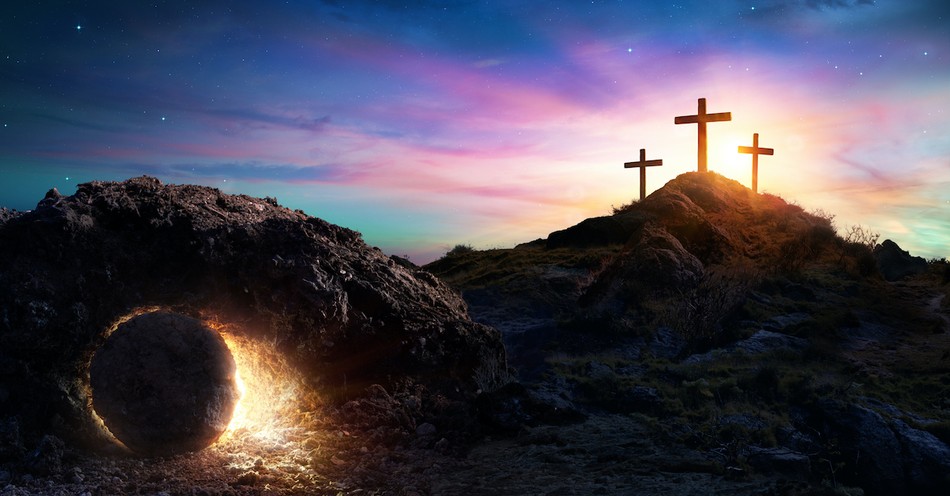As I sit in Jerusalem during Holy Week, I’m struck by the paradox of this city—both a sacred stage for divine encounter and also a hotbed of political tension. From where I sit in my apartment, I can see the Mount of Olives, and I imagine Jesus on the donkey, heading out from Bethany, across the Kidron Valley, and up to Jerusalem. This historic moment put Jesus straight into danger—but He did it because that’s what the Father asked Him to do.
That’s where I want to begin: Jesus didn’t play it safe. Rather, He was obedient.
The Dangerous Road to Obedience
Palm Sunday sets the stage for the rest of what we now call Holy Week. Jesus instructs His disciples to fetch a donkey, fulfilling the words of Zechariah 9:9:
"Rejoice greatly, O daughter of Zion! Shout aloud, O daughter of Jerusalem! Behold, your king is coming to you; righteous and having salvation is he, humble and mounted on a donkey, on a colt, the foal of a donkey."
By riding into Jerusalem like this, Jesus was announcing Himself as the Messiah. He was making a public, prophetic claim in a politically charged environment—a move that would ignite the powder keg of religious and political authorities. The cheers of “Hosanna to the Son of David!” (Matthew 21:9) weren’t just festive—they were revolutionary. They were provocative claims.
Jesus Didn’t Flip Tables to Be Trendy—He Did It to Make a Point.
Then, He walks into the Temple and flips the tables. Yep. On the same day that he declared himself the fulfillment of Zechariah 9:9, He decided that it would be a good idea to clean out the "robbers" from inside the Temple
That wasn’t just a symbolic act. That was an all-out assault on a corrupt system—one that directly benefited the religious elite. Matthew 21:12-13 recounts this moment vividly:
"Jesus entered the temple courts and drove out all who were buying and selling there. He overturned the tables of the money changers and the benches of those selling doves. 'It is written,' he said to them, 'My house will be called a house of prayer,' but you are making it 'a den of robbers.'"
Let’s not sanitize this. What Jesus did was disruptive. Dangerous. And He did it not because it was strategic or popular—but because the Father told Him to.
Walking a Road Paved with Conflict
Throughout that final week, Jesus continued to return to the Temple. Teaching. Healing. Challenging the very authorities plotting His death. He knew what was coming. In Luke 9:51, we read:
“As the time approached for him to be taken up to heaven, Jesus resolutely set out for Jerusalem.”
That’s not a detour. That’s intentional. That’s Jesus choosing the harder road. In John 12, just days before His crucifixion, Jesus says:
“Now my soul is troubled. And what shall I say? ‘Father, save me from this hour’? No, it was for this very reason I came to this hour. Father, glorify your name!” - John 12:27-28
Even as His heart trembled, His mission was clear. He didn’t ask for escape—He asked for the Father to be glorified. Even standing on the precipice of unimaginable pain and suffering, Jesus was more concerned with the Father's glory.
Modern-Day Risk in the Holy City
Being here in Jerusalem even now, you feel that tension. This is not just a city of stones—it’s a city of strain. Religious fervor, cultural friction, and political fault lines all converge here. The Temple Mount, especially during Passover, becomes a focal point for this volatility. Just this week, over 490 Jewish worshipers ascended the Mount on the first day of Passover—a 43% increase from last year.⁽¹⁾ Tensions ran high as activists from both Jewish and Muslim communities clashed over access and prayer rights.⁽²⁾
And when rockets launched from Houthi militants in Yemen prompted air raid sirens in Jerusalem, the sense of unease only intensified.⁽³⁾ These aren’t distant conflicts. They’re the backdrop to the prayers heard from the Western Wall and from the Al Aqsa Mosque, which are only a 100 yards apart.
The Courage of Christ—and Our Call
Jerusalem was no less dangerous in Jesus’ time. The Roman authorities were notorious for their brutal suppression of dissent, often crucifying those who dared challenge their rule—and Jesus knew exactly what awaited Him at the hands of His soon-to-be captors. In Gethsemane, Jesus knelt and prayed:
“Father, if you are willing, take this cup from me; yet not my will, but yours be done.” - Luke 22:42
Obedience over safety. That’s the theme of Holy Week. That’s the challenge to us today. Will we have courage and conquer fear or fall to the flesh and play it safe? That's why, when Rachael and I are asked, "Is it safe?" I'll respond, "No. But we're doing what we feel God called us to do. Live in Jerusalem. Study. Worship. Pray."
Jesus didn’t seek out danger for its own sake, and neither are we. But when danger stood in the way of obedience, He didn’t flinch. And we—whether worship leaders, pastors, parents, or everyday disciples—are called to the same courage.
So, as we walk through Holy Week, may we remember: faith isn’t safe. But it is worth it. Like Jesus, may we follow the Father’s voice—into risk, into purpose, into life abundant.
Footnotes:
Times of Israel – Temple Mount is a ticking time bomb
JNS – 43% increase in Jewish visits to Temple Mount
Ynet News – Rockets launched toward Israel from Houthis
Joshua Swanson is the host of "The Walk: Devotionals for Worshipers."
Photo Credit: ©GettyImages/RomoloTavani




